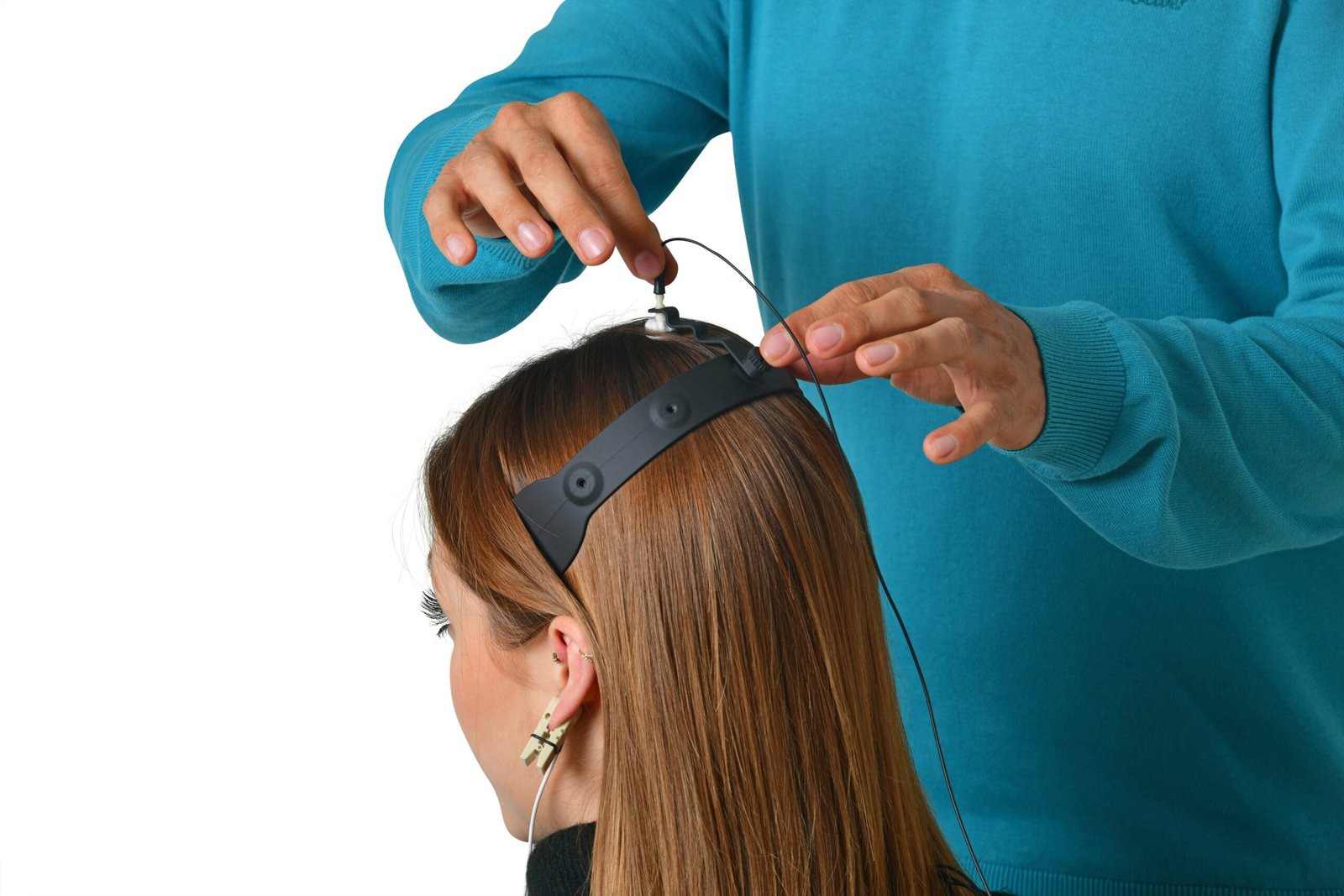Teletherapy, also known as online therapy or e-therapy, refers to the provision of mental health support through digital platforms. This innovative approach to therapy facilitates access to mental health services for individuals, including UK military veterans, who may face barriers in seeking traditional in-person therapy. By leveraging technology, teletherapy allows for flexible scheduling, reduced travel time, and increased privacy, which can be crucial for those transitioning from military to civilian life.
There are several formats through which teletherapy can be delivered. Video calls are often the most recognized method, enabling real-time visual and verbal interaction between therapists and clients. This format can simulate a traditional therapy session, making it easier for veterans to build rapport with their therapists. Additionally, phone consultations offer an effective alternative for those who may not have reliable internet access or prefer auditory communication. Furthermore, messaging platforms provide another medium for support, allowing clients to communicate with their therapists asynchronously, which can be especially beneficial for individuals with busy schedules or those who experience heightened anxiety about engaging in live conversations.
The key benefits of accessing mental health support remotely include increased accessibility and convenience. Veterans, who may live in remote areas or face mobility challenges, can connect with qualified professionals regardless of their location. Teletherapy also reduces stigma associated with attending in-person sessions, as individuals can engage in therapy from the comfort of their homes. This flexibility allows veterans to maintain continuity in their mental health care, ensuring they receive the support they need without compromising their well-being. Overall, teletherapy represents a significant advancement in the delivery of mental health care, providing essential services tailored to the unique needs of military veterans in the UK.
The Importance of Mental Health Support for Veterans
In recent years, there has been increased awareness surrounding the mental health challenges faced by UK military veterans. Statistics indicate that a significant number of veterans experience mental health issues such as Post-Traumatic Stress Disorder (PTSD), anxiety, and depression. According to the UK’s Armed Forces Continuous Attitude Survey, veterans report elevated levels of mental health problems compared to the general population. For instance, a study by the Ministry of Defence revealed that nearly one in ten veterans, post Iraq and Afghanistan conflicts, suffer from PTSD, underscoring the necessity for appropriate psychological support.
The nature of military service exposes individuals to traumatic events that can leave enduring psychological scars. These experiences can contribute to feelings of isolation, hyper-vigilance, and emotional distress, which may hinder a veteran’s ability to reintegrate successfully into civilian life. Many veterans face considerable challenges when seeking mental health support, including associated stigma that can prevent them from disclosing their struggles or asking for help. This stigma can be particularly pronounced in a military culture that often prizes resilience and mental toughness, leading many to believe that acknowledging mental health issues is a sign of weakness.
Accessibility is another critical factor that complicates the mental health landscape for veterans. Geographical isolation can be a barrier for those living in rural areas who may find it difficult to access in-person therapy. Furthermore, limited availability of mental health services tailored specifically for veterans may exacerbate this issue. As a result, many veterans may avoid seeking treatment altogether, which can lead to a deterioration of their mental well-being.
In light of these challenges, it is vital to provide targeted mental health support that addresses the specific needs of UK military veterans. Understanding the unique pressures they face and creating accessible and stigma-free avenues for help can significantly impact their recovery and overall quality of life.
Types of Teletherapy Services Available
Teletherapy services have become increasingly vital for UK military veterans seeking mental health support. Various options cater specifically to the unique experiences and challenges faced by veterans, with a range of services offered by the NHS, private practices, and charitable organizations.
The National Health Service (NHS) provides an array of teletherapy options tailored for veterans. NHS mental health services incorporate a variety of digital formats, including video consultations, phone therapy, and text-based support. Veterans can access Psychological Wellbeing Practitioners specializing in common mental health issues such as depression, anxiety, and post-traumatic stress disorder (PTSD). NHS services prioritize accessibility, ensuring that veterans can engage in therapy from the comfort of their homes, thereby reducing barriers related to transportation and physical mobility.
In addition to NHS offerings, private practices also offer teletherapy that is tailored to veterans. These private services frequently provide a more personalized approach, offering specialized therapies such as Cognitive Behavioral Therapy (CBT), Eye Movement Desensitization and Reprocessing (EMDR), and neuro-linguistic programming (NLP). Veterans accessing private teletherapy may appreciate the increased flexibility in scheduling appointments, which can enhance their overall experience and commitment to the therapeutic process.
Finally, numerous charitable organizations are dedicated to supporting veterans through teletherapy services. These charities often focus on specific concerns relevant to the military community, offering group therapy sessions, peer support, and individual counseling. Many of these services are free or operate on a sliding scale, making mental health care more affordable for veterans. Charities like Combat Stress and the Veterans’ Mental Health Charity provide a structured environment in which veterans can seek help while receiving understanding and guidance from professionals familiar with their unique experiences.
Overall, veterans in the UK are fortunate to have diverse teletherapy options at their disposal, allowing for the pursuit of mental health support that aligns with their specific needs and circumstances.
How to Access Teletherapy as a Veteran
Accessing teletherapy as a veteran in the UK can be a straightforward process if you follow a few essential steps. The first step is to identify suitable teletherapy services that cater specifically to veterans. You can start by visiting veteran organizations’ websites, such as the Royal British Legion or Combat Stress, which often provide lists of mental health resources. Additionally, platforms like the NHS and private health services offer directories for mental health professionals skilled in teletherapy.
Once you have identified potential therapists or services, the next step is registration. Many teletherapy providers allow you to sign up online, requiring some basic information about your identity, contact details, and possibly your service history. Take your time to research multiple options and reach out to various professionals to find one whose approach resonates with you. This preliminary communication can be beneficial in gauging whether their services meet your needs.
Before your first teletherapy session, preparing yourself mentally can enhance the experience. Find a comfortable, quiet space with minimal distractions where you can engage freely during the session. Testing your technology beforehand is also crucial; ensure your device is compatible with the teletherapy platform and that you have a reliable internet connection. During the session, expect the therapist to ask questions about your experiences, mental health challenges, and objectives for therapy.
Therapy can be challenging yet rewarding. Recognize that initiating this journey signifies a positive step towards mental well-being and personal growth. Regularly attending sessions can lead to significant changes over time, facilitating the healing process and helping veterans navigate post-service life. Availing yourself of teletherapy options can make professional mental health support more accessible, fostering resilience among veterans in the UK.
Technological Considerations for Teletherapy
As teletherapy gains traction as a viable form of mental health support for UK military veterans, it is essential to consider the technological aspects that facilitate this access. To engage in effective teletherapy sessions, several key components come into play: devices, internet connectivity, and relevant software.
The choice of device significantly influences the quality of the teletherapy experience. While smartphones and tablets are commonly used, a laptop or desktop computer can provide a more stable platform due to larger screens and better audio-visual capabilities. Veterans are encouraged to utilize devices equipped with a reliable camera and microphone to enhance communication with therapists.
In terms of internet connectivity, a stable and fast internet connection is vital for seamless sessions. A minimum download speed of 1 Mbps is typically recommended for video calls, although higher speeds can improve the overall experience. Veterans should consider using a wired connection if possible, as this can often provide greater stability than Wi-Fi. Furthermore, being in a quiet environment with minimal distractions can help maintain focus during sessions.
Regarding software, a variety of platforms are available for teletherapy, ranging from specialized mental health applications to more general video conferencing tools. It is important to select a program that prioritizes user-friendliness and offers features that support privacy, which are essential for maintaining confidentiality in therapy sessions. Popular options include Zoom, Skype, and dedicated platforms like Doxy.me.
Addressing privacy and security concerns is crucial when accessing mental health services online. Veterans should ensure the chosen platform complies with data protection regulations, such as the UK General Data Protection Regulation (GDPR). Utilizing end-to-end encryption and secure login processes can help safeguard sensitive information during teletherapy sessions.
Benefits of Teletherapy for Military Veterans
Teletherapy has emerged as a vital resource for military veterans seeking mental health support, offering numerous advantages that align well with the unique needs of this population. One of the most significant benefits of teletherapy is its convenience. Veterans can access therapy sessions from the comfort of their homes, eliminating the need to travel long distances to see a therapist. This is particularly beneficial for those residing in remote areas where mental health services may be scarce.
Reducing travel time is another key advantage of teletherapy. For many veterans, traveling to appointments can be a logistical challenge, often involving multiple modes of transportation. By utilizing teletherapy, veterans can save precious time, which can instead be devoted to other important responsibilities or self-care activities. This factor alone can contribute positively to their overall mental well-being.
Accessibility is a crucial consideration for veterans, especially for those with limited mobility or who are managing other health issues. Teletherapy provides an effective solution for individuals facing such challenges, as it offers a flexible and adaptable approach to mental health care. Veterans can choose when and where they prefer to conduct their sessions, allowing for a customized experience that meets their personal circumstances.
Anecdotal evidence has highlighted the transformative impact that teletherapy can have on veterans’ lives. Many have reported improved emotional regulation and a greater sense of connection with their therapists, fostering a supportive environment crucial for healing. One veteran shared how teletherapy allowed them to attend sessions regularly and maintain a consistent focus on their mental health goals, which they previously found difficult. This type of personalized support extends beyond geographical boundaries, ensuring that veterans can access the care they deserve, no matter where they are located.
Challenges and Limitations of Teletherapy
Teletherapy has emerged as a vital means of delivering mental health support to UK military veterans, yet it is not without its challenges and limitations. One notable issue is the technical difficulties that can arise during virtual sessions. Inconsistent internet connectivity, software compatibility problems, or inadequate hardware can disrupt therapy sessions, diminishing the overall therapeutic experience. These technical barriers can lead to frustration for both the therapist and the veteran, limiting engagement and continuity of care.
Another significant challenge is the lack of personal connection that often accompanies virtual interactions. Face-to-face interactions naturally foster a sense of rapport and trust between therapist and client, which can be diluted in a virtual setting. The absence of non-verbal cues, such as body language and eye contact, may hinder the building of a therapeutic alliance essential for effective treatment. Additionally, veterans who are accustomed to in-person therapy may find the transition to teletherapy challenging, thereby impacting their receptiveness to mental health support.
Moreover, not all individuals are equally comfortable with technology, which can serve as a barrier to accessing teletherapy. Older veterans, in particular, or those who have not engaged with digital platforms before, may feel overwhelmed by the process. This digital divide can exacerbate feelings of isolation, especially among individuals who already face challenges accessing mental health services. Addressing these barriers necessitates strategic solutions, such as offering technology training sessions or ensuring access to user-friendly platforms designed specifically for veterans seeking support.
In conclusion, while teletherapy presents a convenient alternative for mental health care access, it is essential to acknowledge the inherent challenges it poses. Recognizing these limitations allows practitioners to develop tailored strategies that can enhance the teletherapy experience for UK military veterans.
Additional Resources for Veterans
For military veterans in the UK seeking mental health support, numerous resources are available to facilitate access to care and community. Veterans can significantly benefit from accessing a variety of helplines, websites, forums, and community support groups specifically tailored to their unique experiences and needs. One of the most essential resources is the Veterans’ Gateway, which offers free, 24/7 support through various channels, including live chat and phone consultations. This platform provides veterans with access to information and advice on healthcare, finance, and emotional wellbeing.
In addition to the Veterans’ Gateway, Help for Heroes is another notable organization that assists veterans in their mental health journey. They offer a wealth of resources, including counseling services and physical recovery programs, aimed at enhancing overall wellbeing. The charity’s supportive environment fosters healing and recovery among veterans, making this a vital resource for those in need.
Moreover, Combat Stress is an organization dedicated to providing mental health support for veterans. They offer a comprehensive range of services, including a helpline, online support, and residential care for conditions such as PTSD and anxiety. Their approach recognizes the distinct challenges faced by veterans, ensuring tailored support.
Forums and online communities also serve as crucial platforms for veterans to connect with one another, share experiences, and seek advice. Websites such as the Service Personnel and Veterans Agency (SPVA) and the Armed Forces Forum are valuable for providing information on mental health services. Community support groups, whether in-person or virtual, can foster social connections that are integral to the recovery process.
In conclusion, veterans in the UK have access to a vast array of resources dedicated to supporting their mental health needs. By utilizing these organizations and services, they can find the help necessary to navigate the challenges they may face in civilian life.
Conclusion: The Future of Mental Health Support for Veterans
The significance of teletherapy as a vital resource for UK military veterans has become increasingly apparent, particularly in light of the unique challenges this population faces in accessing mental health support. As we have discussed, teletherapy offers numerous advantages, such as increased accessibility, reduced stigma, and the ability to provide timely interventions. These factors are crucial for veterans who may otherwise encounter barriers to traditional face-to-face therapy, such as geographical constraints or prevalent mental health stigma.
Looking ahead, the future of mental health support for veterans through teletherapy appears promising. Innovations in technology are likely to facilitate even greater access to specialized mental health services. Virtual reality and AI-driven therapeutic tools are gaining traction, potentially allowing for more immersive and personalized therapeutic experiences. Additionally, as the understanding of veterans’ unique needs expands, more tailored teletherapy programs are likely to emerge. These programs can specifically focus on PTSD, anxiety, and depression among veterans, ensuring that therapies are not just accessible, but also relevant and effective.
Furthermore, government initiatives and collaborations with non-profit organizations are expected to play a pivotal role in promoting teletherapy among veterans. Increased funding for mental health services, educational campaigns, and outreach efforts can help dismantle existing barriers while promoting the benefits of teletherapy. As awareness grows and acceptance of teletherapy becomes more mainstream, it will be essential for mental health professionals to continuously adapt their approaches to meet the evolving needs of veterans.
In summary, teletherapy represents a vital component in the future landscape of mental health support for military veterans. Ongoing advancements, coupled with a commitment to enhancing access and personalization, will undoubtedly improve the lives of many who have served, ensuring they receive the comprehensive support they deserve.






